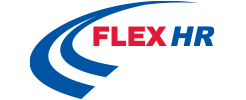How to Ensure that Your Business Has an Inclusive and Supportive Environment
It’s 2023, and DEI issues have been on the forefront for several years now. You would think organizations would have successfully implemented an inclusive and equitable environment for all employees, right?
Yet, in many sectors in the workplace, there is still staggering inequality. In fact, racism has increased in technology from 18% of people of color reporting discrimination in 2021 to 24% in 2022.
Among those who face discrimination are those with a disability or mental health condition, who are not given the same support and opportunities as their coworkers.
In the past years, many companies have created policies or taken measures they thought would address DEI issues. Yet, many of these were not enforced, not implemented properly, or not tested to see if they were actually benefiting those facing discrimination.
Now, companies need to take steps to improve implementation and create an equitable environment for all.
Conduct a Cultural Assessment
Just because your company created policies in 2021 to address concerns about racial discrimination doesn’t mean you’re all set.
Now is the time to go back to the drawing board to assess what you’ve been doing and plan for future DEI success. If you haven’t already done one, you will need to conduct a cultural assessment to determine the culture and behaviors of your organization and its leadership.
What you find in the assessment will help determine the types of policies you need, which will likely mean updating old policies and creating new ones where you see a need.
Through the assessment, you can gain an awareness of what motivates your employees, what kinds of diversity are present in your workforce, and contributes to psychological safety and wellness for everyone.
Create and Update Policies
After you’ve gained the necessary information, you’ll need to create and update your policies to make your workplace more equitable and inclusive.
One example of a policy to level the playing field is pay transparency. If the salaries of every position in the company are known, it will create awareness of any possible wage discrimination, which you can then address.
Another example is to have training sessions for employees to raise awareness of issues of implicit bias, bias interrupter, and how to contribute to an inclusive environment.
Policies should cover everything from recruiting, training, and hiring to salaries, promotions, and individual growth and support within your organization. Make sure these are written and live in the company handbook.
Enforce and Implement Policies
For every policy you create, you need planned check in points to discuss measurable outcomes. When policies are not being implemented and followed through, there needs to be accountability and consequences.
This means every level of leadership in your organization needs to understand and buy into the importance of the DEI policies you’ve created and are trying to enforce. They need to understand that your organization as a whole is only as healthy and well-functioning as its parts, and that when all employees are being understood and valued, everyone is better for it.
You’ll need to communicate policies, updates, and consequences for those who violate or fail to implement policies clearly and regularly, with a strategy that everyone can understand. Look for and reward or call out improvement, which shows your organization is moving in the right direction.
Get Employee Feedback
Instead of just relying on the managers and higher-ups to tell you if your policies are being implemented and are effective, ask your employees about how supportive and helpful the policies have been.
You should consider hiring BIPOC or disabled consultants or asking BIPOC employees or those with disabilities to contribute their ideas to creating and implementing policies, especially if you find your efforts are not working.
Remember that each employee has individual needs, and policies that worked for another organization might not work for your organization.
Use HR Support
At Flex HR, we know that each workplace is unique and filled with unique challenges to create an inclusive and fair environment. We are able to come alongside organizations, especially those with limited internal resources to tackle creating and implementing a DEI plan.
We have noticed many organizations making strides to fight racism, gender bias, and and include more disabilities in their place of work but are at a loss to know how to support individuals with disabilities.
We can help your organization accommodate these individuals with low cost to you and high satisfaction to your employees.
In fact, you should know that most workplace accommodations for employees with disabilities cost little to nothing.
Partner with us to create a more equitable work environment today.


